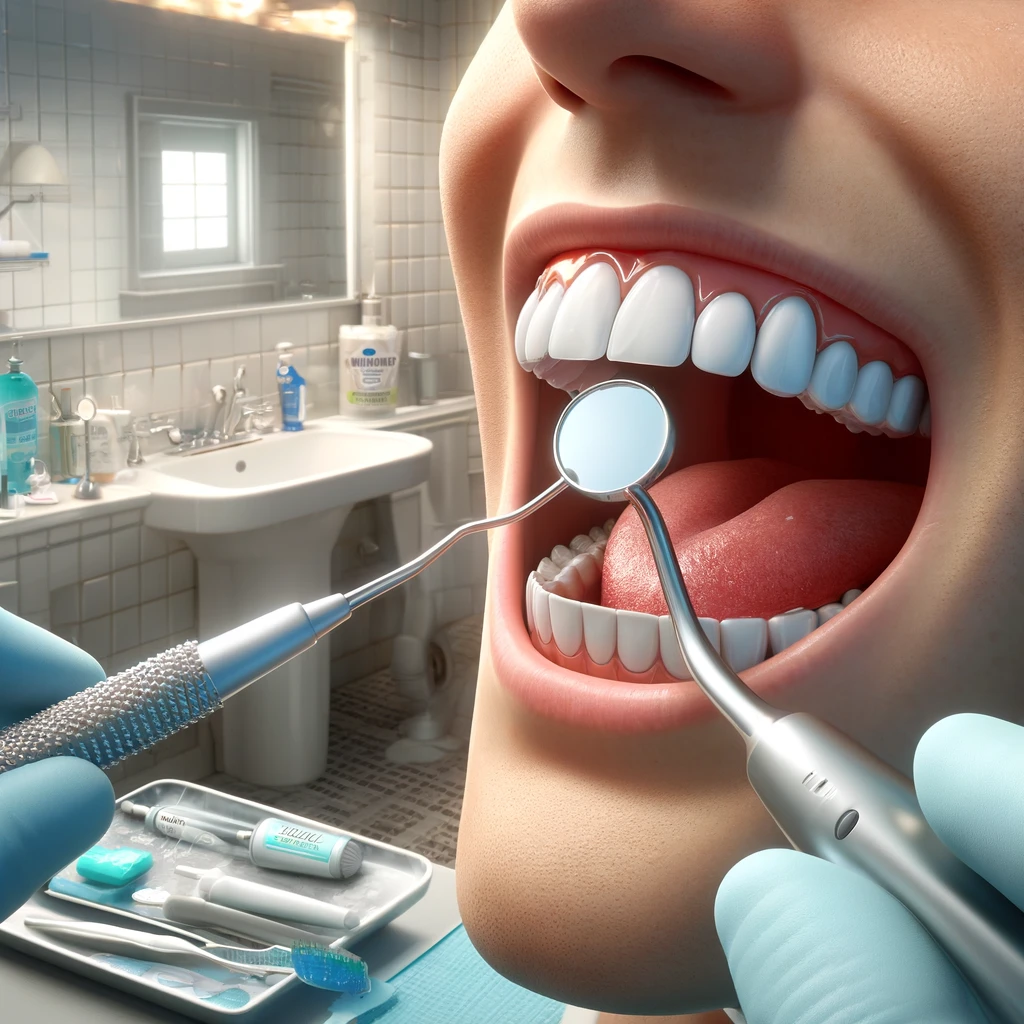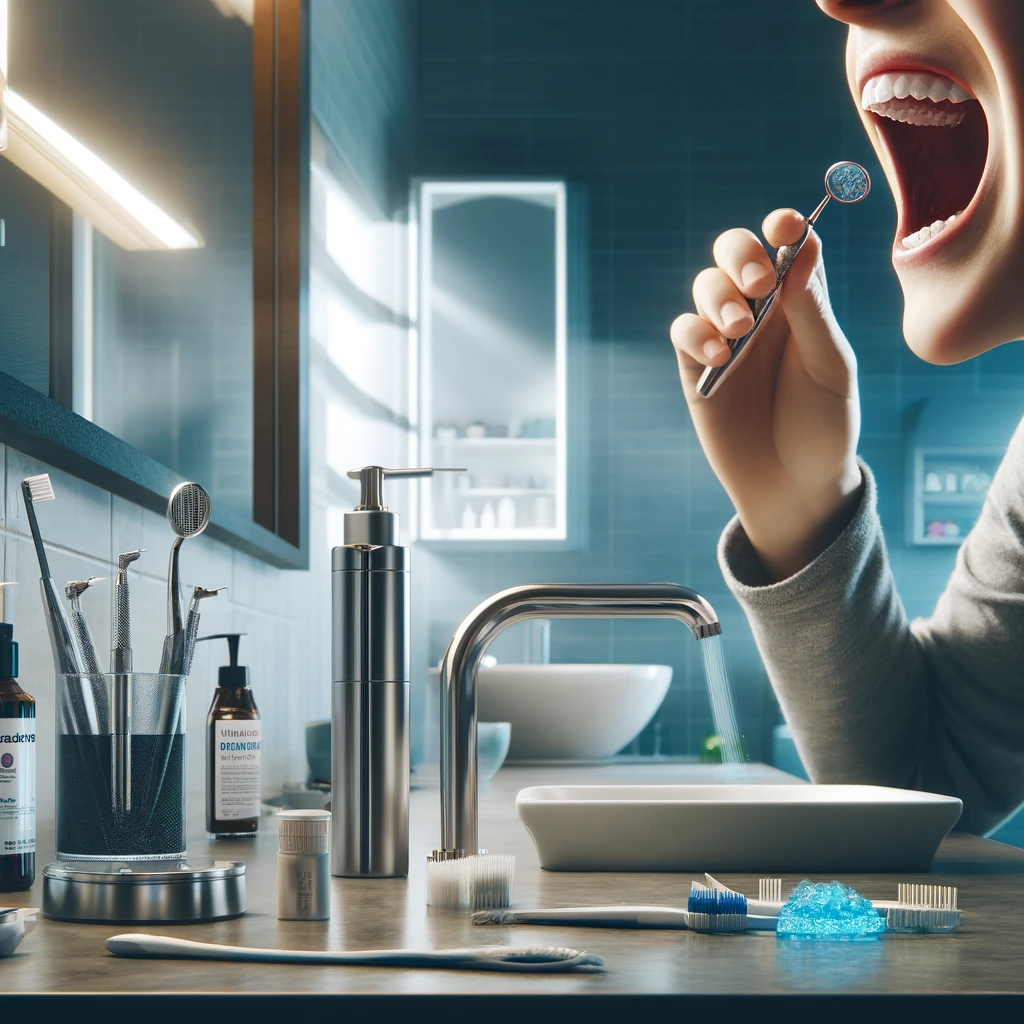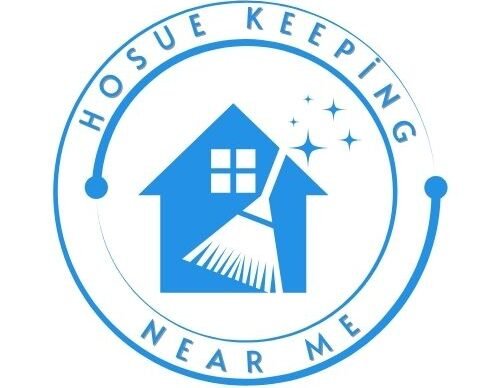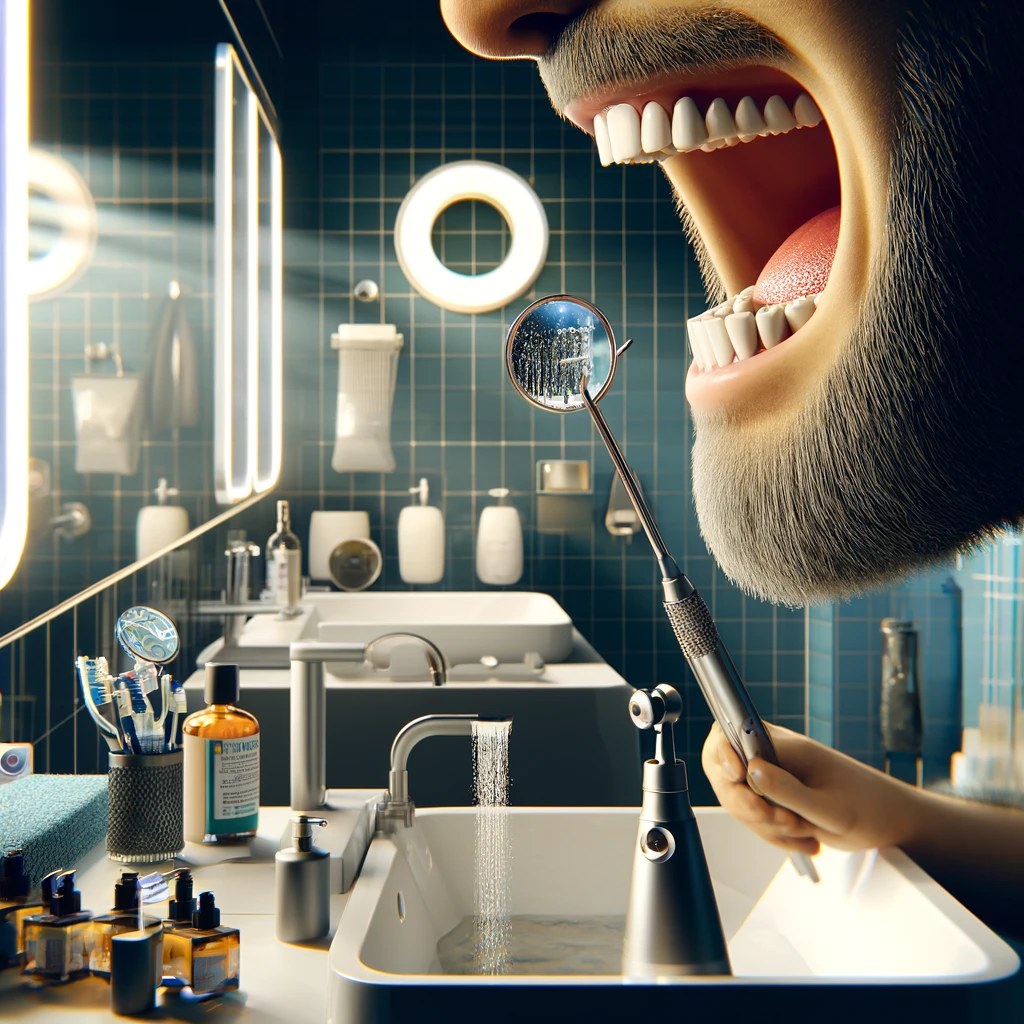Comprehensive Guide to Teeth Deep Cleaning at Home
A comprehensive guide to teeth deep cleaning at home is essential for maintaining optimal oral hygiene. Teeth deep cleaning, also known as scaling and root planing, involves removing plaque and tartar build-up from the teeth and gums, which regular brushing and flossing might miss.Teeth deep cleaning at home this thorough process helps prevent gum disease, cavities, and other dental issues. By following this guide, you’ll learn effective techniques and tools for deep cleaning your teeth at home, ensuring a healthier smile.Teeth deep cleaning at home investing time in proper dental care can save you from costly dental treatments and keep your breath fresh and teeth sparkling.
Key Takeaways
- Deep cleaning helps prevent serious dental issues.
- Essential tools include electric toothbrushes and interdental brushes.
- Proper techniques can significantly improve oral health.
Would you like me to write part 1 of the article with links? If so, I’ll add your external links + give me some internal links to use too.
Why Deep Cleaning Your Teeth at Home is Important
Deep cleaning your teeth at home is crucial for maintaining oral health.Teeth deep cleaning at home it helps remove plaque and tartar buildup that regular brushing and flossing might miss. Deep cleaning can prevent gum diseases like gingivitis and periodontitis, which can lead to tooth loss if untreated.Teeth deep cleaning at home additionally, it helps in eliminating bad breath and ensuring a brighter smile. Regular deep cleaning can also reduce the risk of cavities and promote healthier gums.Teeth deep cleaning at home it complements your regular dental visits and can significantly enhance your overall dental hygiene routine.
Benefits of Deep Cleaning:
- Removes plaque and tartar
- Prevents gum diseases
- Eliminates bad breath
- Promotes healthier gums
Difference Between Regular and Deep Teeth Cleaning
Regular teeth cleaning involves brushing twice daily and flossing to remove food particles and plaque from the tooth surface and gum line.Teeth deep cleaning at home , however, is a more thorough process that reaches below the gum line to remove hardened tartar and bacteria. While regular cleaning maintains daily oral hygiene, deep cleaning targets more persistent issues and requires special tools like dental scalers or ultrasonic cleaners.Teeth deep cleaning at home it’s usually recommended for people with signs of gum disease or excessive tartar buildup. Both practices are essential, but deep cleaning offers a deeper level of care.
Key Differences:
- Regular cleaning: surface-level care
- Deep cleaning: below gum line
- Tools used: toothbrush and floss vs. scalers and ultrasonic cleaners
- Frequency: daily vs. as needed for gum health
Safety Precautions for Deep Cleaning Teeth at Home
Safety is paramount when performing deep cleaning of your teeth at home.Teeth deep cleaning at home first, use sterilized tools to avoid infections. Dental scalers and ultrasonic cleaners should be handled with care to prevent gum damage. Avoid applying excessive pressure that can harm enamel or gums. Follow the manufacturer’s instructions for any tools or products used.Teeth deep cleaning at home consider using antiseptic mouthwash before and after cleaning to reduce bacteria. If you experience persistent pain or bleeding, stop immediately and consult a dentist. Regular professional check-ups are also essential to ensure your deep cleaning practices are effective and safe.
Safety Tips:
- Use sterilized tools
- Handle tools carefully
- Avoid excessive pressure
- Use antiseptic mouthwash
- Consult a dentist if issues arise

Essential Tools for Deep Cleaning Your Teeth at Home
Maintaining excellent oral hygiene is crucial for overall health, and deep cleaning your teeth at home can significantly contribute to this.Teeth deep cleaning at home using the right tools ensures a thorough clean, preventing plaque buildup, cavities, and gum disease.
Key tools include:
- Electric toothbrushes
- Dental floss
- Mouthwash
Incorporating these into your daily routine can enhance your oral care regimen, providing a professional-level clean from the comfort of your home.
Best Electric Toothbrushes for Deep Cleaning
Electric toothbrushes are highly effective for deep cleaning your teeth, providing superior plaque removal compared to manual brushes.Teeth deep cleaning at home they offer various features that help in maintaining optimal oral hygiene.
Top electric toothbrushes:
- Philips Sonicare DiamondClean: Known for its powerful cleaning action and multiple brushing modes.
- Oral-B Pro 3000: Features a pressure sensor and cross-action bristles for a thorough clean.
- Quip Electric Toothbrush: Combines simplicity with effective cleaning and is travel-friendly.
These electric toothbrushes provide enhanced cleaning capabilities, ensuring that your teeth are free from plaque and debris.
Recommended Dental Floss for Thorough Cleaning
Dental floss is essential for removing food particles and plaque from areas your toothbrush can’t reach.Teeth deep cleaning at home regular flossing prevents gum disease and cavities, ensuring complete oral hygiene.
Highly recommended dental floss:
- Cocofloss: Infused with coconut oil, it’s gentle on gums yet effective in removing plaque.
- Oral-B Glide Pro-Health: Known for its smooth texture and ability to slide easily between teeth.
- Listerine Ultraclean Dental Floss: Offers a textured surface that enhances plaque removal.
Incorporate these dental floss options into your daily routine for a comprehensive clean, especially between tight spaces.
Top-Rated Mouthwashes for Deep Cleaning
Mouthwash is a vital component of a deep cleaning routine, helping to kill bacteria, freshen breath, and reach areas missed by brushing and flossing.
Best mouthwashes for deep cleaning:
- TheraBreath Fresh Breath Oral Rinse: Effective in eliminating bad breath and bacteria.
- Listerine Total Care Anticavity Mouthwash: Provides cavity protection and overall mouth health.
- Crest Pro-Health Advanced Mouthwash: Offers multiple benefits, including gum protection and plaque control.
Using these top-rated mouthwashes can significantly enhance your oral hygiene, ensuring a clean and healthy mouth.
Step-by-Step Process for Deep Cleaning Teeth at Home
Pre-Cleaning Steps for Optimal Results
Before starting the deep cleaning process, prepare your mouth and tools for optimal results.Teeth deep cleaning at home begin by rinsing your mouth with an antiseptic mouthwash to reduce bacteria. Gather all necessary tools, including a toothbrush, dental scaler, floss, and an ultrasonic cleaner if available. Ensure all tools are sterilized to prevent infections.Teeth deep cleaning at home drink a glass of water to help loosen any food particles. Create a well-lit environment to see inside your mouth clearly. These steps ensure a clean, safe, and effective deep cleaning process.
Pre-Cleaning Checklist:
- Rinse with antiseptic mouthwash
- Gather and sterilize tools
- Drink water
- Ensure good lighting
How to Properly Brush for a Deep Clean
Proper brushing is crucial for an effective deep clean. Use a soft-bristled toothbrush and fluoride toothpaste. Hold the brush at a 45-degree angle to your gums and use gentle, circular motions.Teeth deep cleaning at home brush all surfaces of your teeth, including the front, back, and chewing surfaces. Spend at least two minutes brushing, and don’t forget to brush your tongue to remove bacteria and freshen breath.Teeth deep cleaning at home for an extra deep clean, consider using an electric toothbrush with oscillating bristles. This technique ensures thorough plaque removal and promotes oral health.
Brushing Tips:
- Use a soft-bristled toothbrush
- Brush at a 45-degree angle
- Gentle, circular motions
- Brush all tooth surfaces
- Spend at least two minutes brushing
Effective Flossing Techniques for Deep Cleaning
Flossing is essential for removing plaque and debris between teeth that brushing misses.Teeth deep cleaning at home use a length of floss about 18 inches long, winding it around your fingers, leaving about 2 inches to work with. Gently insert the floss between your teeth, curving it into a C-shape around each tooth. Slide it up and down against the tooth surface and below the gum line.Teeth deep cleaning at home use a clean section of floss for each tooth to avoid redistributing plaque. If traditional floss is difficult, consider using floss picks or a water flosser for effective cleaning.
Flossing Steps:
- Use 18 inches of floss
- Curve floss into a C-shape
- Slide up and down against tooth
- Clean below the gum line
- Use clean sections for each tooth
Natural Remedies for Teeth Deep Cleaning at Home
Maintaining oral hygiene with natural remedies can be both effective and safe.Teeth deep cleaning at home these methods utilize common household ingredients and herbal products, providing a thorough clean without the use of harsh chemicals.
Natural cleaning methods include:
- Baking soda
- Oil pulling
- Herbal mouthwashes
Incorporating these remedies into your daily routine can enhance your oral health naturally and effectively.
Using Baking Soda for Deep Cleaning Teeth
Baking soda is a popular natural remedy for deep cleaning teeth. Its mild abrasiveness helps remove plaque and surface stains, making your teeth appear whiter and cleaner.
Benefits of baking soda:
- Removes plaque and stains
- Neutralizes acids in the mouth
- Affordable and easily accessible
How to use: Mix a small amount of baking soda with water to form a paste.Teeth deep cleaning at home brush your teeth with this paste 2-3 times a week to maintain a bright and clean smile. Avoid overuse to prevent enamel damage.
Benefits of Oil Pulling for Oral Health
Oil pulling is an ancient Ayurvedic practice that involves swishing oil in your mouth to remove toxins and improve oral health. Commonly used oils include coconut, sesame, and sunflower oil.
Advantages of oil pulling:
- Reduces harmful bacteria
- Improves gum health
- Whitens teeth naturally
How to practice: Swish one tablespoon of oil in your mouth for 15-20 minutes daily. Spit out the oil and rinse your mouth thoroughly with warm water. Regular oil pulling can lead to fresher breath and healthier gums.
Herbal Mouthwashes for a Deep Clean
Herbal mouthwashes offer a natural alternative to conventional products, using plant-based ingredients to clean and freshen the mouth.Teeth deep cleaning at home they can be made at home or purchased from natural health stores.
Effective herbal mouthwashes:
- Aloe vera: Known for its soothing properties.
- Tea tree oil: Has natural antibacterial effects.
- Peppermint oil: Freshens breath and kills bacteria.
How to use: Dilute a few drops of herbal extract in water and use it as a mouth rinse. Incorporate herbal mouthwashes into your daily oral care routine to benefit from their deep-cleaning and refreshing properties.

Preventing Plaque and Tartar Build-Up at Home
Daily Habits for Maintaining Clean Teeth
Maintaining clean teeth requires consistent daily habits. Brush your teeth twice a day using fluoride toothpaste and a soft-bristled toothbrush. Floss daily to remove plaque and food particles from between your teeth. Rinse with an antiseptic mouthwash to kill bacteria that cause plaque. Additionally, replace your toothbrush every three months or sooner if the bristles are frayed. Chewing sugar-free gum after meals can also help increase saliva flow, which naturally cleanses the mouth. These simple daily practices can significantly reduce the risk of plaque and tartar build-up.
Daily Maintenance Tips:
- Brush twice daily
- Floss daily
- Use antiseptic mouthwash
- Replace toothbrush regularly
- Chew sugar-free gum
Foods to Avoid for Better Oral Health
Certain foods can contribute to plaque and tartar build-up, negatively impacting your oral health.Teeth deep cleaning at home sugary foods and beverages, such as candy, soda, and pastries, feed harmful bacteria in your mouth, leading to plaque formation. Starchy foods like bread, chips, and pasta can get stuck in your teeth and turn into sugar. Acidic foods and drinks, including citrus fruits and juices, can erode enamel, making it easier for plaque to cling to your teeth.Teeth deep cleaning at home limiting these foods and opting for a balanced diet rich in vegetables, fruits, and water can help maintain better oral health.
Foods to Avoid:
- Sugary foods and beverages
- Starchy foods
- Acidic foods and drinks
Regular Home Maintenance Tips for Oral Hygiene
Regular home maintenance is essential for optimal oral hygiene. Start by scheduling a routine for brushing and flossing, ensuring consistency. Use a tongue scraper to remove bacteria from the tongue’s surface. Consider incorporating an oral irrigator or water flosser into your routine for a deeper clean. Regularly clean your toothbrush holder and store your toothbrush upright to air dry. Drinking plenty of water throughout the day helps rinse away food particles and bacteria. By following these home maintenance tips, you can effectively prevent plaque and tartar build-up.
Home Maintenance Tips:
- Schedule consistent oral care routines
- Use a tongue scraper
- Incorporate a water flosser
- Clean toothbrush holder regularly
- Drink plenty of water
Addressing Common Issues with Home Teeth Deep Cleaning
Avoiding Gum Damage During Deep Cleaning
Gum damage is a common concern when deep cleaning teeth at home.Teeth deep cleaning at home to avoid this, use gentle pressure when brushing and flossing. Opt for a soft-bristled toothbrush to minimize irritation. When using dental tools like scalers, be cautious not to push too hard or dig into the gums. Follow the recommended techniques, such as angling the brush at 45 degrees to the gum line.Teeth deep cleaning at home additionally, avoid using abrasive toothpaste which can cause further damage. Proper technique and tool selection are crucial for protecting your gums during deep cleaning.
Tips to Prevent Gum Damage:
- Use gentle pressure
- Select a soft-bristled toothbrush
- Follow proper brushing techniques
- Avoid abrasive toothpaste
Managing Sensitivity After Deep Cleaning
Teeth sensitivity is a common issue after deep cleaning. To manage sensitivity, use toothpaste designed for sensitive teeth, which contains ingredients like potassium nitrate or stannous fluoride that help soothe nerve endings. Avoid consuming extremely hot or cold foods and beverages immediately after cleaning. Rinse with lukewarm water instead of cold water to reduce discomfort.Teeth deep cleaning at home applying a fluoride gel can also help strengthen enamel and reduce sensitivity. If sensitivity persists, consider consulting a dentist for additional recommendations or treatments.
Ways to Manage Sensitivity:
- Use sensitive toothpaste
- Avoid hot and cold foods
- Rinse with lukewarm water
- Apply fluoride gel
When to See a Dentist for Professional Advice
While home teeth deep cleaning can be effective, certain situations require professional dental advice. If you experience persistent pain, bleeding, or swelling, it’s crucial to consult a dentist. Also, if you notice receding gums or loose teeth, seek professional help immediately.Teeth deep cleaning at home regular dental check-ups every six months are recommended to monitor oral health and catch issues early. A dentist can provide tailored advice and professional cleaning that complements your home care routine, ensuring optimal dental health.
Signs You Need a Dentist:
- Persistent pain or bleeding
- Receding gums
- Loose teeth
- Regular check-ups every six months
Enhancing the Effectiveness of Home Teeth Deep Cleaning
Using Whitening Products Safely
To enhance the effectiveness of your deep cleaning routine, using whitening products can be beneficial. However, it’s essential to use them safely. Choose products approved by dental associations to ensure their safety and efficacy. Follow the manufacturer’s instructions carefully, and avoid overuse, which can damage enamel and increase sensitivity. Whitening strips, gels, and toothpaste should be used in moderation. For best results, consult with your dentist before starting any whitening regimen, especially if you have existing dental issues.
Safe Whitening Practices:
- Use approved products
- Follow instructions
- Avoid overuse
- Consult your dentist
Combining Professional and Home Cleaning Methods
Combining professional and home cleaning methods can significantly enhance your oral hygiene. Teeth deep cleaning at home professional cleanings remove tartar and plaque that at-home tools might miss. Regular dentist visits, ideally every six months, provide a thorough clean and professional assessment of your oral health. Between visits, maintain a rigorous home cleaning routine that includes brushing, flossing, and using mouthwash. This combination ensures comprehensive care and long-term oral health.
Combining Methods:
- Schedule professional cleanings
- Maintain rigorous home routine
- Brush, floss, and use mouthwash
- Regular dental check-ups
Regular Check-Ups to Complement Home Care
Regular dental check-ups are vital to complement your home care routine. These visits allow your dentist to detect early signs of decay, gum disease, and other oral health issues.Teeth deep cleaning at home professional cleanings during these visits remove plaque and tartar buildup, enhancing the effectiveness of your at-home efforts. Your dentist can also provide personalized advice and treatments tailored to your specific needs. Consistent check-ups, combined with diligent home care, ensure a comprehensive approach to maintaining optimal oral health.
Importance of Check-Ups:
- Early detection of issues
- Professional cleanings
- Personalized advice
- Comprehensive oral care

